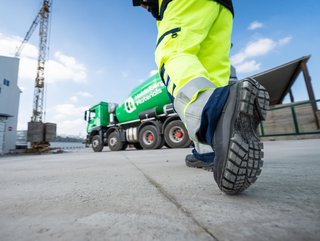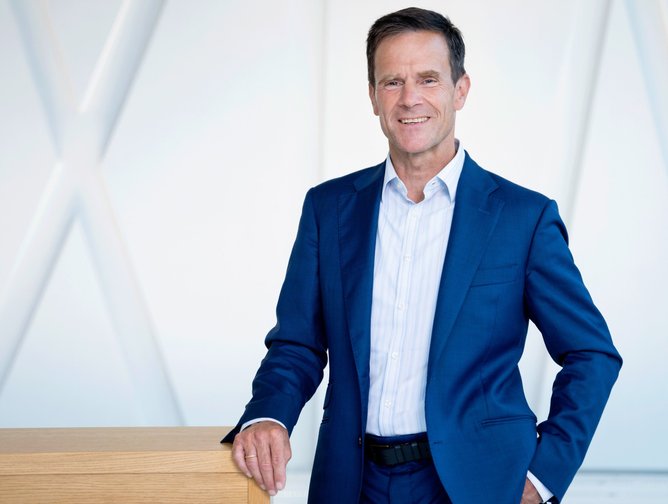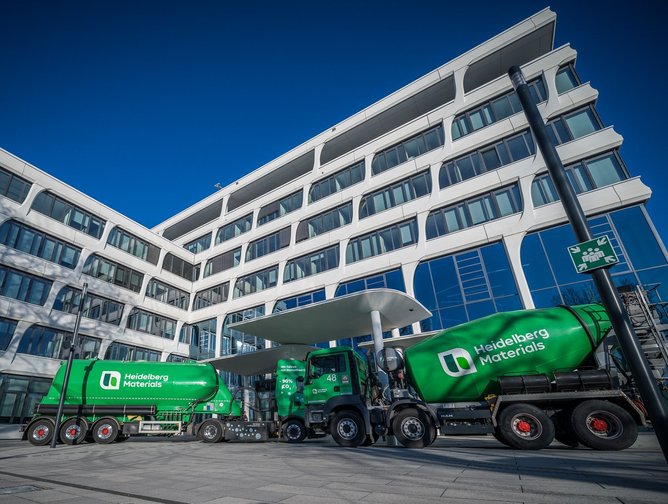Heidelberg Materials Behind World’s First Net-Zero Concrete

When it comes to decarbonising the concrete industry, there is no doubting the pivotal role of carbon capture and storage technology.
The technology is estimated to account for 60% of carbon savings in the UK alone by 2050, according to Mineral Products Association’s (MPA) decarbonisation roadmap.
Powering the journey to decarbonisation in construction – startups and scientists all over the world are at different stages of developing technologies aimed at storing and locking in carbon.
But rather than a startup, it is a century-old company that's paving the way for concrete decarbonisation – recently launching the world’s first carbon captured net-zero cement.
Enter Heidelberg Materials (formerly Heidelberg Cement) – the world’s first heavy building materials industry that has grown over 150 years into one of the world’s largest manufacturers of building materials with revenues of €21.1 billion.
Armed with a 51,000-strong workforce at 3,000 locations in more than 50 countries, Heidelberg Materials supplies cement, concrete and a range of building materials, solutions and services worldwide.
Solving the climate challenge has been the company’s focus for many years – and with the roll-out of its new and global corporate brand over the last few years, Heidelberg Materials is taking a pioneering role in the reduction of CO2 emissions.
Driving the circular economy in the construction industry, the company’s goal is to secure 50% of its revenue with sustainable products by 2030.
“We have the ambition, the speed, the knowledge, the technologies, and the partners to lead the necessary process of transformation in our sector, says CEO Dominik von Achten – who took the reins of Heidelberg Cement in 2020, driving the rebrand to Heidelberg Materials.
“Our focus is on expanding our portfolio of sustainable products, rapidly and significantly reducing our CO2 emissions, proving that the production of carbon-neutral products is possible on a large scale, and creating a circular economy by rigorously implementing the principle of circularity.”

Carbon Capture and Storage Technology Central to Decarbonisation Roadmap
The result of cutting-edge technology without compromising on strength or performance, evoZero is based on the application of carbon capture and storage (CCS) technology.
“Carbon capture and storage is a breakthrough technology for the building materials industry and we are frontrunners in deploying it at scale,” says Dominik.
“On our journey towards climate-neutrality, CCUS – carbon capture, utilisation, and storage – is a crucial tool for us as a building materials manufacturer when it comes to dealing with the raw material-related process emissions that have been unavoidable up to now,” says von Achten.
The company is producing ecoZero cement at its Brevik, Norway cement plant, the world’s first industrial-scale carbon capture facility at a cement plant – and will begin supplying customers with evoZero products in 2025.
“We are offering the industry’s most innovative, globally unique product for our customers, enabling them to drive cutting-edge, environmentally friendly construction projects.”
Using the evo-Zero net-zero cement for the first time, the Nobel Centre building in Stockholm is a lighthouse project designed to be at the forefront of environmental and climate responsibility.
Scheduled for construction in 2027, the collaboration aims to “set a new standard for sustainable construction and pave the way for other future-oriented players”, according to Jon Morrish, CEO Europe of Heidelberg Materials.
With a portfolio of nine innovative, industrial-scale CCUS projects to date, Heidelberg Materials is continuing to expand its pioneering role.
Launching its largest CCUS project so far, in 2022, in Mitchell, USA, this will have the capacity to capture approximately 2 million tonnes of CO2 per year.
And then in early 2023, the company announced two more major CCUS projects.
At its plant in Antoing, Belgium, a state-of-the-art hybrid carbon capture facility will be built to help the company to reduce its CO2 emissions by 800,000 tonnes.
“We’re planning the same capacity at our plant in Devnya, Bulgaria. Both projects are scheduled to start in 2028,” says von Achten.

Heidelberg Materials Launches Second Global Sustainable Product Brand
With a goal to generate half of its revenue sustainable products by 2050, Heidelberg Materials is taking its innovation in sustainability to the next level with the roll-out of a second product brand.
Marking the company’s second global brand with a focus on sustainability, evoBuild products are characterised by their contribution to carbon reduction and circularity and their clear sustainability credentials – with each product meeting strict requirements to become a part of the range.
Using globally standardised criteria to label sustainable products, ecoBuild products will be available in all business lines and are either low-carbon (cement and concrete), circular (concrete) of feature a combination of both.
According to Chief Sustainability and Innovation Officer Dr Nicola Kimm, the low-carbon products must provide a CO2 reduction of at least 30% compared to the reference value, whil circular products must feature at least 30% recycled aggregates, or reduce material requirements by at least 30%.
Nicola says the launch of evoBuild means the company is now applying the same clear criteria for sustainable products to all its Group companies around the world.
The consistent evoBuild tiering is based on the company’s sustainability strategy and significantly increases transparency towards both customers and stakeholders.
“This is an important step toward achieving one of our key targets on the way to net zero as we aim to generate 50% of our revenue with sustainable products by 2030,” says Kimm.






